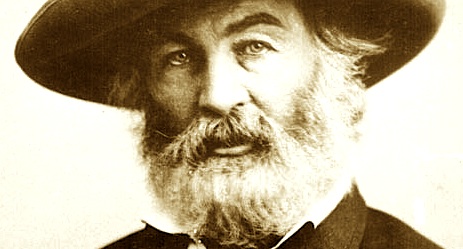I’m big on perceiving paradox and contradictions, quoting the already oft-quoted Walt Whitman from his Song of Myself:
Do I contradict myself? Very well, I contradict myself.
(I am large, I contain multitudes.)
I see this everywhere.
It’s OK.
And I acknowledge that if I reach for the comfort/licence of that philosophy (which I do) I must also allow it for others. I do so.
Today, thanks to Anu Garg, I’ve come across another insight from writer and philosopher Albert Camus (1913-1960) which speaks to me of our search for a simple consistency in all the wrong places:
Absolute justice is achieved by the suppression of all contradiction:
therefore it destroys freedom.
Right. Whew, that seems like a high price.
There’s a time when our drive to excise all injustice from a situation actually isn’t worth the candle. Sometimes we have to bear observing an ‘injustice’ or a ‘lie’, and for the greatest good of all concerned, let it go, and trust (hope?) that it will be balanced up later. Sometimes we have to compromise or negotiate.
A good friend of mine is transitioning out of an environment where she has been loved and treasured, and, because paradoxes exist everywhere, also been on the receiving end of whatever feels like the opposite of ‘loved and treasured’.
It’s painful at times, this life of ours, but love and conflict are better than apathy.* Our feathers get ruffled. That’s just how it goes.
My goal (not yours — you choose yours) is always to try to give my gifts in the best way I can, living as honestly as I can, but not stupidly or naively, and to encourage others to do the same. Sometimes that means ‘manning up’ and striding into conflict to try to set wrongs right, or sounding a warning (we discuss whistle-blowing here from time to time).
It doesn’t always have to be a battle though. I try to empathise with others, and to allow them their personal sovereignty and freedom.
Sometimes it means disengaging from a problematic situation … walking away. I try to do that without heat or confrontation, unless it’s strictly necessary, trying to remember that we’re all emotional children on the inside, no matter how well-developed our rational ‘be cool’ shell appears.
Although I do sometimes reach strong judgements (I call it ‘being discerning’, pah!) and sometimes come to discount others based on my perception of their actions, I’ve learned that people don’t always care for one’s opinion, so unless it’s actually asked for, why offer it?
‘You already know what you’re thinking. Listen and find out what they are thinking’ is good advice — and not just for negotiating situations.
However you treat people, you are, by so doing teaching them to treat you that way. Spooky.
* “Better to have loved and lost …” — Tennyson


